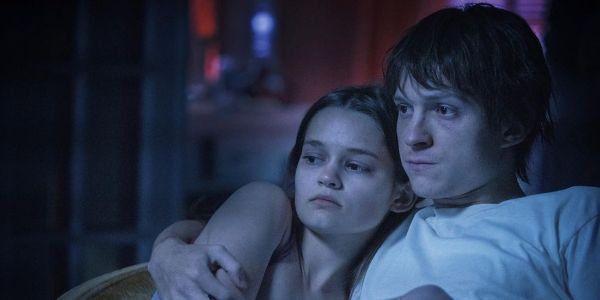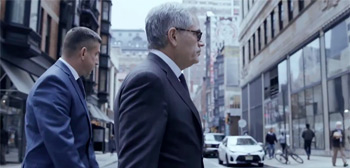Double Take: ‘Showgirls’ at 25 and the Unlikely Legacy of Nomi Malone
Double Take is a series in which Anna Swanson and Meg Shields sit down and yell at each other about the controversial, uncomfortable, and contentious corners of cinema. And when it comes to controversial, uncomfortable, and contentious, there is only one holy grail, and it’s covered in glitter, champagne, and [redacted]. Joined by fellow trash apologist Madison Brek, for the 25th anniversary, it’s time to talk about Paul Verhoeven’s Showgirls.
Films like 1995’s Showgirls only come along once in a century. The first and only NC-17 film to receive a wide release in mainstream theaters, it was a critical and box office bomb. And widely considered to be the worst film ever made. Roger Ebert called it “a waste of a perfectly good NC-17 rating.” Variety‘s Todd McCarthy said watching the film was akin to being “keelhauled through a cesspool.” For The Washington Post, Desson Howe called the film “an overcoat movie for men who don’t want to be seen going into a porno theater.” Tell us what you really think!
Written by Joe Eszterhas (Basic Instinct) and directed by Paul Verhoeven (RoboCop), Showgirls follows Nomi Malone (Elizabeth Berkley), a drifter who hitchhikes to Las Vegas in hopes of making it as a showgirl. After a rough start, Nomi’s roommate Molly (Gina Ravera), invites her backstage to a topless revue show at the Stardust Casino. Starstruck by the show’s resident diva, Cristal Connors (Gina Gershon), Nomi makes it her mission to make it big at the Stardust, no matter the price.
After a successful second life on the home video market, Showgirls has enjoyed cult status, a Blu-ray release, and critical re-evaluation. Twenty-five years later, the film has found its way from punchline to fundamental inclusion in the so-bad-it’s-good canon. But does this cult fandom tell the whole story? What are we to do with the aspects that are not so easily reclaimed? And where does the line between exploitation and critique lie? These are the questions that still linger with Verhoeven’s paragon of trash a quarter-century after the fact.
In celebration of the twenty-fifth anniversary, and in the spirit of re-appraisal, Meg, Anna, and Madison sat down to unpack this famously failed film. This is the conversation that followed:
Anna Swanson: Meg, as the person who just watched this for the first time, what was your knowledge of Showgirls going into Showgirls?
Meg Shields: I’d heard the jokes on RuPaul’s Drag Race. And more broadly, there were a lot of infamous lines I knew to expect (“everybody got AIDS and shit,” “doggy chow,” etc.). I knew there was something salacious with a pool. I knew there was something about hardening nipples with ice cubes. Vaguer things like hand motions and baubles on stage floors. Bits and pieces. Like a half-remembered dream [laughing]. I feel like with all these out of context nuggets, you can feel a magnetic pull towards Showgirls. But you need to watch the whole thing for it all to click into place and operate at full capacity. So yeah, news reached me of Sh’girls. I also knew it did horrible things to Elizabeth Berkley’s career.
AS: It’s very sad what happened to her.
MS: Especially since this is the greatest performance ever recorded on film.
Madison Brek: Okay, I am so glad you said that because I totally agree. I am such an admirer of her performance in this movie and not in any kind of ironic way. I really just think it’s amazing.
MS: It also feels like what Berkley is doing is too consistent to not have some sort of conscious thought behind it.
AS: She is what movies are all about.
MS: Is Nomi Malone cinema? Yes.
AS: I think too many people have asked the question “Why does Elizabeth Berkley do this?” and not enough people have asked, “How does Elizabeth Berkley do this?”
MS: I wondered if there was a Showgirls musical and the answer is: duh, yes. A reviewer described the actress who plays the stage version of Nomi Malone as “coltish.” Like, as in a small, aggressive, angry horse. It’s a perfect way to describe Nomi’s energy.
AS: Also, if you want something good to watch, I recommend the documentary You Don’t Nomi. It includes an interview with the woman who played Nomi in the musical. The way she speaks about the role and what it meant to her is actually very nice.
MB: Back to Berkley’s acting, I actually think I appreciated the performance more after watching Starship Troopers. I think she’s doing something so much riskier and so much more impressive than any of the actors in Starship Troopers. And it’s the way that Verhoeven is weaponizing this “bad acting” there that made me appreciate her work in Showgirls as something more intentional.
MS: I love you calling it weaponizing because that’s exactly what it is.
MB: In Starship Troopers, you have Casper Van Dien and Denise Richards who, kind of like Elizabeth Berkley, are so striking looking that it actually circles back around to being too much. They look like fake hot people.
MS: Which is what Las Vegas is all about. I just love that a Dutchman is so tapped into what makes America America. He’s like, “I know you, I see you. Let me show you what you look like.” And America was like, “Absolutely not. This is the worst movie ever.”
AS: I think it’s interesting that as much as the film was lampooned and everyone hated it and it tanked Verhoeven’s career, he still fared better than Berkley did. I think she’s the last thing about this film that people hesitate to reclaim as good, and I don’t understand why.
MS: I mean…we know why.
AS: Well, yes. But she is what makes Showgirls, Showgirls. So, if you’re gonna reclaim the film as a camp masterpiece, you have to acknowledge that it wouldn’t be the film it is without Berkley’s performance.
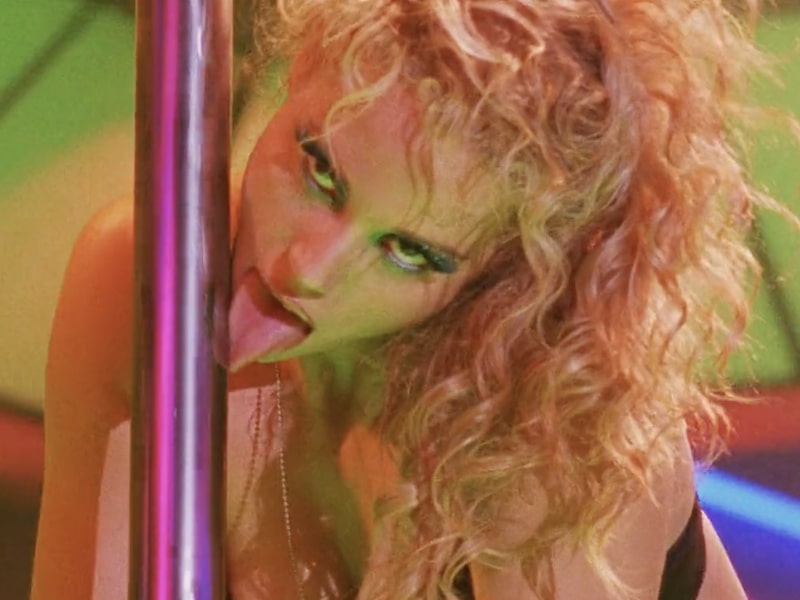
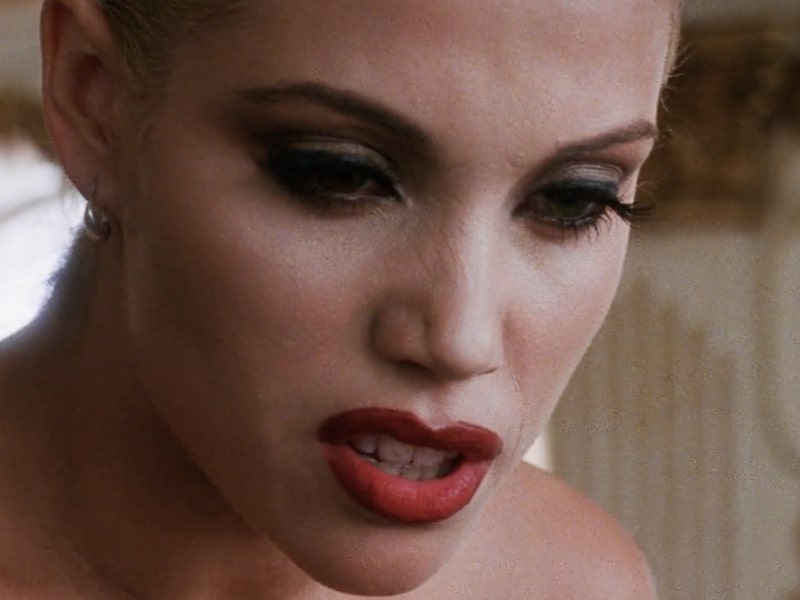
MB: Take, for example, Gina Gershon, who is obviously a great actress and is being relatively normal, let’s say…
AS: She’s definitely the number one person who knows what movie she’s in.
MS: Kyle MacLachlan is definitely at the other end of that spectrum.
AS: Yeah, MacLachlan is looking for David Lynch at every corner.
MB: Imagine someone like Gina reading Nomi’s lines. It wouldn’t work.
MS: This is one of those cases where the line between “this is a bad script” and “this was on purpose” is hard to suss out. It’s all too unwavering to not be intentional. It never fails to commit to the thing it’s doing. Which is what makes it so endearing and campy. As far as doing what it set out to do, it did not fail.
AS: I like that Showgirls never does that thing where movies will give you something that is “bad to enjoy” and then scold you or talk down to you about how it’s so bad. This movie never pretends it’s above us.
MS: That’s a really good point. It definitely isn’t holier than thou in any way. I think that’s the only way to tell a story like this: to be honest about all the lowly, seedy aspects of entertainment. It doesn’t shy away from anything. Could you imagine a safe version of Showgirls?
AS: Have you seen Burlesque?
MS: No.
AS: Burlesque is a safe Showgirls.
MS: Why would you make a film like that?
MB: Meg, I have a question for you since you just watched the film for the first time. It seems like you skipped past the “so bad it’s good” stage and were just immediately on board.
MS: From the moments the credits rolled, I was like: “Oh yeah, I get it.” Like, that man rolled up in that truck with that hair, and I thought, “I know exactly what this movie is.”
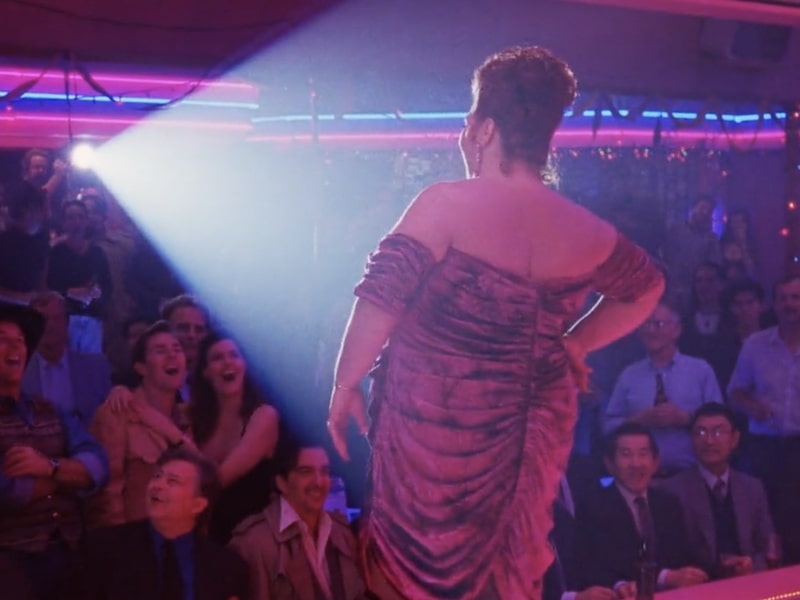
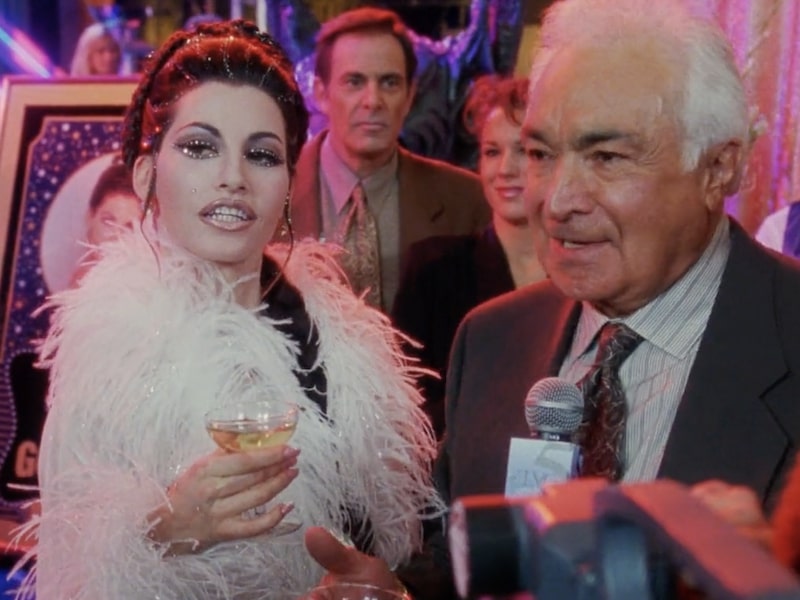
MB: Anna, were you ever in the “so bad it’s good” camp?
AS: The first time I saw it, I knew the film had been ridiculed when it came out and I heard that it was “so bad it’s good.” I think the first time I saw the film, I didn’t fully know what to make of it. And then a few years after that, I watched it again after becoming friends with renowned Showgirls scholar, writer, and lecturer Adam Nayman.
MS: He literally wrote the book on it.
AS: So yeah, the second time I had much more context and I knew more about Verhoeven. I think I really saw it as being so much richer than just bad-good.
MS: You used the word “ridiculed,” and I think that’s what’s at the heart of most “so bad it’s good” discourse. I don’t think there’s a lot of love in that take. It’s just you going to the freak show to laugh at the historically poorly-regarded trainwreck. But I think if you put out of your mind all the crusty vitriol of pop culture critics past, you can have such a good time! I’m sure someone could do a competent formal breakdown of like, why Showgirls isn’t Citizen Kane or whatever. But it does what it does very well.
AS: Even if you wanted to subject Showgirls to critical analysis, on a technical level, this film is incredibly well-made. The way it uses editing and composition, even just shot-reverse-shot techniques, staging, and imagery. The lunch conversation between Nomi and Cristal, the way that scene uses perspective and editing, it’s brilliant. This isn’t a poorly made film that is fun to watch. It is a very well made film. Full stop.
MB: I feel like that scene is the apex of the bad screenwriting: the doggy chow conversation. That was something from Nayman’s book that completely illuminated things for me in terms of Verhoeven’s intentionality. The point he makes is about Verhoeven breaking the 180-degree rule — which is a very interesting and deliberate filmmaking choice — at the exact moment where the screenwriting really reaches its “what on earth are they talking about?” peak.
AS: It’s also, like, as much as the doggy chow stuff is ridiculous when you do get the reveal of Nomi’s past and her criminal record, it’s clear that this is someone who comes from poverty. And that idea that there was nothing to eat but dog food tracks with what we later learn of that character in a very sad way.
MS: I feel like Verhoeven isn’t allowed to get away with weird, stilted dialogue in a way that someone like Lynch is. I was thinking a lot about the early parts of Mulholland Drive while watching Showgirls. Where Naomi Watts —
AS: Nomi Watts.
MS: Nomi Watts, that’s right, thank you, Anna. Anyway, obviously Lynch’s film has complete sentences and no one talks about doggy chow. But both films have this detached vibe that paints the entertainment industry as dissociated and nightmarish. I have to imagine that was intentional on Verhoeven’s part.
MB: I think it once again becomes a question of how willing you are to accept the intentionality of Showgirls. I mean, Anna, you’ve also seen it four times. I find that when you watch Showgirls over and over again, you no longer notice all these weird moments of dialogue that obviously really stand out on your first viewing. Someone says something outrageous and you’re just like: “Yes. Exactly.”
AS: My favorite line of the film is from Robert Davi: “Must be weird, not having anybody cum on you.”
MB: That’s a great one.
AS: It’s kind of my favorite scene. They’re her mom and dad!
MB: Going back to how on-the-nose Verhoeven is, if we’re saying that the reason people wrote this movie off is that they weren’t seeing it as satire, it’s interesting to think that people were just absolutely resistant to this kind of feminist critique of American capitalism.
MS: Verhoeven tends to push through the barrier of extremity to the point where people don’t recognize what he’s doing as intentional extremity. It’s no longer exaggeration to make a point, it’s exaggeration that has resulted from some kind of misjudgment.


